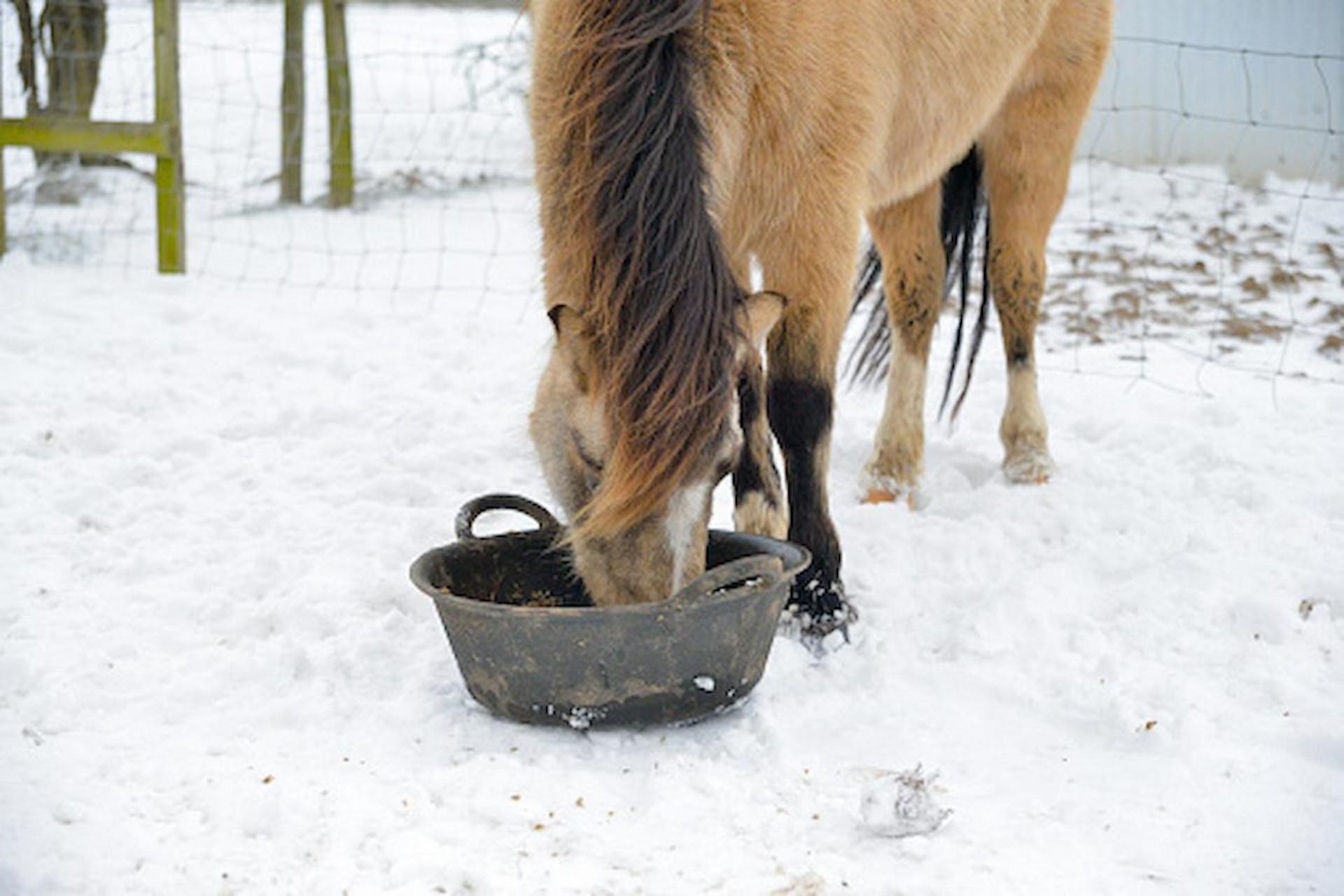The winter is a difficult time of year for all horse owners but for those who have veteran or senior horses and ponies, there can be some extra challenges. Selecting the right horse feed is a key area as older horses may have poor teeth and can be more prone to digestive upsets. The following advice will help you to keep your older horse in top condition this winter.
- If you have to reduce your veteran’s access to pasture during the winter months, the change to hay or haylage will reduce their moisture intake – grass is about 80% water, hay is about 20% water and haylage is somewhere in between! Feeding a soaked mash in the bucket feed will help to increase water intake and ease the transition away from pasture
- In trials with older horses with poor dentition, it was found that they are significantly slower at eating hay than younger horses with good teeth which doesn’t sound surprising until you realise that the difference was 66%! If your veteran has forage in the field and is out with younger horses, just be aware that the others may well be gobbling up your horse’s share of the hay! Separating them for some of the time will help to ensure they get enough to maintain their condition.
- Conserved forages are much less digestible than pasture. Adding a digestive enhancer supplement that contains yeast and/or prebiotics will help your horse to get more out of their forage and counteract that reduction in digestibility
- Feeding plenty of forage and fibre based horse feeds will help to keep your horse warm – as fibre is fermented in the digestive system it gives off heat – literally your horse’s central heating system! Choose feeds are all high in fibre and so will help to keep your veteran cosy this winter
- If your veteran has PPID then it is likely that laminitis is never far from your thoughts. If you need to put weight on as safely as possible then fibre and oil are the ingredients you need to look for. Micronised linseed is a great example of an ingredient that provides high levels of oil in a relatively small volume of horse feed.
- If your veteran is young at heart then a fibre and oil based diet provides slow-release energy for condition without the fizz.
- If your veteran only has a few teeth left then you need to provide forage in a shorter chop form or you may even need to use soaked pellets or mashes to provide sufficient fibre. Grass Pellets can be used as complete or partial hay replacers. No teeth doesn’t have to mean poor condition!
- Finally, if you have a query about feeding your veteran, ask a nutritionist for help. They can recommend alternatives to forage as well as advise on the best feeds to put in the bucket.




